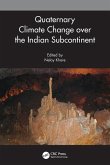This book documents the agreed geological reference point for the Pleistocene boundary, and its worldwide correlation.
The Pleistocene Boundary and the Beginning of the Quaternary presents the results of a forty-year international program to establish a precise definition for the most important boundary in geologic time - the beginning of the modern age of glacial climates. This book, the final report of International Geological Correlation Project 41, describes the selection of a fixed reference point in the sequence of deep-water marine strata exposed at Vrica, Italy. This point, dated to 1.81 million years before the present, coincides with the onset of the first of four major glacial phases. The opening chapters of the book document the geology and palaeontology of the agreed physical reference point, and the successful proposal of this point as the boundary-stratotype of the Pleistocene Epoch. The book then describes the correlation of the boundary throughout the ocean basins and continents of the world in terms of detailed stratigraphic criteria such as planktonic biostratigraphy, magnetostratigraphy and radiometric age determinations.
Table of content:
List of contributors; Preface: the new Pleistocene; Foreword; Part I. Definition of the Base of the Quaternary: 1. International Geological Correlation Program, Project 41: (?)0;Neogene/Quaternary Boundary- Ksenia V. Nikiforova and Mikhail N. Alekseev; Part II. Characterization of the Pleistocene Boundary-Stratotype: 2. The Pliocene-Pleistocene boundary-stratotype at Vrica, Italy Giancarlo Pasini and Maria Luisa Colalongo; 3. The magnetostratigraphy of the Vrica section, Italy, and its correlation with the Plio-Pleistocene of the Boso Peninsula, Japan Hisao Nakagawa, Nobuaki Niitsuma, Toshiaki Takayama, Yasumochi Matoba, Motoyoshi Oda, Shigemoto Tokunaga, Hiroshi Kitazato, Toyosaburo Sakai and Itaru Koizumi; 4. Comparison of the laminated units at Vrica and deep-sea sapropels from the Eastern Mediterranean Isabella Raffi and Robert Thunell; 5. Calcareous nannofossil biochronology and the Pliocene-Pleistocene boundary Domenico Rio, Isabella Raffi and Jan Backman; 6. Diatom microfossils from the Vrica section Andrew J. M. Palmer; Part III. The Paleontological Context of the Pleistocene Boundary: 7. The Pliocene-Pleistocene boundary in deep sea sediments William A. Berggren and Lloyd H. Burckle, Jr.; 8. Late Cenozoic changes of flora in extra-tropical Eurasia in the light of paleomagnetic stratigraphy Vladimir P. Grichuk; 9. Pliocene-Pleistocene mammal faunas: an overview Emiliano Aguirre, Eleanora A. Vangengeim, Jorge Morales, Marina V. Sotnikova and Vladimir S. Zazhigin; 10. Human evolution in the Plio-Pleistocene interval Emiliano Aguirre; Part IV. The Pleistocene Boundary in Regional Sequences: 11. The Pliocene-Pleistocene boundary in Italy Augusto Azzaroli, Maria Luisa Colalongo, Hisao Nakagawa, Giancarlo Pasini, Domenico Rio, Giuliano Ruggieri, Samuele Sartoni and Rodolfo Sprovieri; 12. Stratigraphy of the Plio-Pleistocene sequence of the Mediterranean coastal belt of Israel and its implications for the evolution of the Nile Cone Gedaliahu Gvirtzman, Guido M. Martinotti and Shimon Moshkovitz; 13. Pliocene-Pleistocene transition in the Iberian peninsula Emiliano Aguirre; 14. Biostratigraphy and calibrated climatic chronology of the upper Pliocene and lower Pleistocene of France Jean Chaline; 15. Pliocene-Pleistocene of England Richard W. Hey; 16. Quaternary boundary in the Netherlands Waldo H. Zagwijn; 17. Quaternary boundary in western Germany Günther Von Der Brelie, Karl Brunnacker, Winfried Hinsch and Heinz Tobien; 18. The Pliocene-Pleistocene boundary in eastern Germany Hans-Dietrich Kahlke, Lothar Eissmann and Friedrich Wiegank; 19. The Pliocene-Pleistocene of Hungary Andrew A. Rónai; 20. The Pliocene-Pleistocene boundary in Romania Constantin Ghenea; 21. The Pliocene and Pleistocene of the European part of the Commonwealth of Independent States Ksenia V. Nikiforova; 22. The N/Q boundary in Asian Russia and Tadjikistan Mikhail N. Alekseev; 23. The Pliocene-Pleistocene boundary in the Indian subcontinent M. V. A. Sastry; 24. The Pliocene-Pleistocene boundary in Japan: the Osaka Group, Kinki district Minoru Itihara, Shusaku Yoshikawa and Tadao Kamei; 25. The Pliocene-Pleistocene boundary in Japan: stratigraphy in the Boso Peninsula, central Japan Hisao Nakagawa, Nobuaki Niitsuma, Takashi Mitsunashi, Motoyoshi Oda, Toshiaki Takayama and Toyosaburo Sakai; 26. The base of the Quaternary in China Zhang Shouxin; 27. Pliocene-Pleistocene deposits and the Quaternary boundary in sub-Saharan Africa H. Basil S. Cooke; 28. Pliocene-Pleistocene reference sections in Indonesia François Sémah; 29. The Pliocene-Pleistocene boundary in New Zealand Anthony R. Edwards; 30. The Pliocene-Pleistocene boundary in continental sequences of North America Everett H. Lindsay; Index.
Hinweis: Dieser Artikel kann nur an eine deutsche Lieferadresse ausgeliefert werden.
The Pleistocene Boundary and the Beginning of the Quaternary presents the results of a forty-year international program to establish a precise definition for the most important boundary in geologic time - the beginning of the modern age of glacial climates. This book, the final report of International Geological Correlation Project 41, describes the selection of a fixed reference point in the sequence of deep-water marine strata exposed at Vrica, Italy. This point, dated to 1.81 million years before the present, coincides with the onset of the first of four major glacial phases. The opening chapters of the book document the geology and palaeontology of the agreed physical reference point, and the successful proposal of this point as the boundary-stratotype of the Pleistocene Epoch. The book then describes the correlation of the boundary throughout the ocean basins and continents of the world in terms of detailed stratigraphic criteria such as planktonic biostratigraphy, magnetostratigraphy and radiometric age determinations.
Table of content:
List of contributors; Preface: the new Pleistocene; Foreword; Part I. Definition of the Base of the Quaternary: 1. International Geological Correlation Program, Project 41: (?)0;Neogene/Quaternary Boundary- Ksenia V. Nikiforova and Mikhail N. Alekseev; Part II. Characterization of the Pleistocene Boundary-Stratotype: 2. The Pliocene-Pleistocene boundary-stratotype at Vrica, Italy Giancarlo Pasini and Maria Luisa Colalongo; 3. The magnetostratigraphy of the Vrica section, Italy, and its correlation with the Plio-Pleistocene of the Boso Peninsula, Japan Hisao Nakagawa, Nobuaki Niitsuma, Toshiaki Takayama, Yasumochi Matoba, Motoyoshi Oda, Shigemoto Tokunaga, Hiroshi Kitazato, Toyosaburo Sakai and Itaru Koizumi; 4. Comparison of the laminated units at Vrica and deep-sea sapropels from the Eastern Mediterranean Isabella Raffi and Robert Thunell; 5. Calcareous nannofossil biochronology and the Pliocene-Pleistocene boundary Domenico Rio, Isabella Raffi and Jan Backman; 6. Diatom microfossils from the Vrica section Andrew J. M. Palmer; Part III. The Paleontological Context of the Pleistocene Boundary: 7. The Pliocene-Pleistocene boundary in deep sea sediments William A. Berggren and Lloyd H. Burckle, Jr.; 8. Late Cenozoic changes of flora in extra-tropical Eurasia in the light of paleomagnetic stratigraphy Vladimir P. Grichuk; 9. Pliocene-Pleistocene mammal faunas: an overview Emiliano Aguirre, Eleanora A. Vangengeim, Jorge Morales, Marina V. Sotnikova and Vladimir S. Zazhigin; 10. Human evolution in the Plio-Pleistocene interval Emiliano Aguirre; Part IV. The Pleistocene Boundary in Regional Sequences: 11. The Pliocene-Pleistocene boundary in Italy Augusto Azzaroli, Maria Luisa Colalongo, Hisao Nakagawa, Giancarlo Pasini, Domenico Rio, Giuliano Ruggieri, Samuele Sartoni and Rodolfo Sprovieri; 12. Stratigraphy of the Plio-Pleistocene sequence of the Mediterranean coastal belt of Israel and its implications for the evolution of the Nile Cone Gedaliahu Gvirtzman, Guido M. Martinotti and Shimon Moshkovitz; 13. Pliocene-Pleistocene transition in the Iberian peninsula Emiliano Aguirre; 14. Biostratigraphy and calibrated climatic chronology of the upper Pliocene and lower Pleistocene of France Jean Chaline; 15. Pliocene-Pleistocene of England Richard W. Hey; 16. Quaternary boundary in the Netherlands Waldo H. Zagwijn; 17. Quaternary boundary in western Germany Günther Von Der Brelie, Karl Brunnacker, Winfried Hinsch and Heinz Tobien; 18. The Pliocene-Pleistocene boundary in eastern Germany Hans-Dietrich Kahlke, Lothar Eissmann and Friedrich Wiegank; 19. The Pliocene-Pleistocene of Hungary Andrew A. Rónai; 20. The Pliocene-Pleistocene boundary in Romania Constantin Ghenea; 21. The Pliocene and Pleistocene of the European part of the Commonwealth of Independent States Ksenia V. Nikiforova; 22. The N/Q boundary in Asian Russia and Tadjikistan Mikhail N. Alekseev; 23. The Pliocene-Pleistocene boundary in the Indian subcontinent M. V. A. Sastry; 24. The Pliocene-Pleistocene boundary in Japan: the Osaka Group, Kinki district Minoru Itihara, Shusaku Yoshikawa and Tadao Kamei; 25. The Pliocene-Pleistocene boundary in Japan: stratigraphy in the Boso Peninsula, central Japan Hisao Nakagawa, Nobuaki Niitsuma, Takashi Mitsunashi, Motoyoshi Oda, Toshiaki Takayama and Toyosaburo Sakai; 26. The base of the Quaternary in China Zhang Shouxin; 27. Pliocene-Pleistocene deposits and the Quaternary boundary in sub-Saharan Africa H. Basil S. Cooke; 28. Pliocene-Pleistocene reference sections in Indonesia François Sémah; 29. The Pliocene-Pleistocene boundary in New Zealand Anthony R. Edwards; 30. The Pliocene-Pleistocene boundary in continental sequences of North America Everett H. Lindsay; Index.
Hinweis: Dieser Artikel kann nur an eine deutsche Lieferadresse ausgeliefert werden.

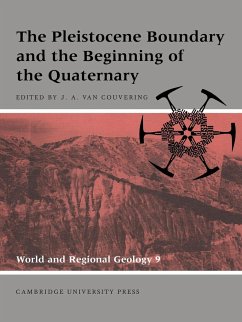
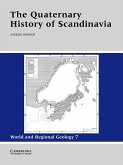
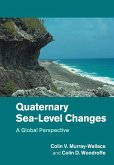
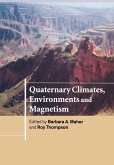
![Notes on the Pleistocene Geology of a Few Places in the Ottawa Valley [microform] Notes on the Pleistocene Geology of a Few Places in the Ottawa Valley [microform]](https://bilder.buecher.de/produkte/66/66186/66186562m.jpg)
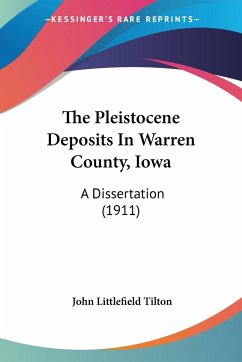
![Mother Lode and Sunset Mines, Boundary Disrict, B.C. [microform] Mother Lode and Sunset Mines, Boundary Disrict, B.C. [microform]](https://bilder.buecher.de/produkte/65/65572/65572245m.jpg)
